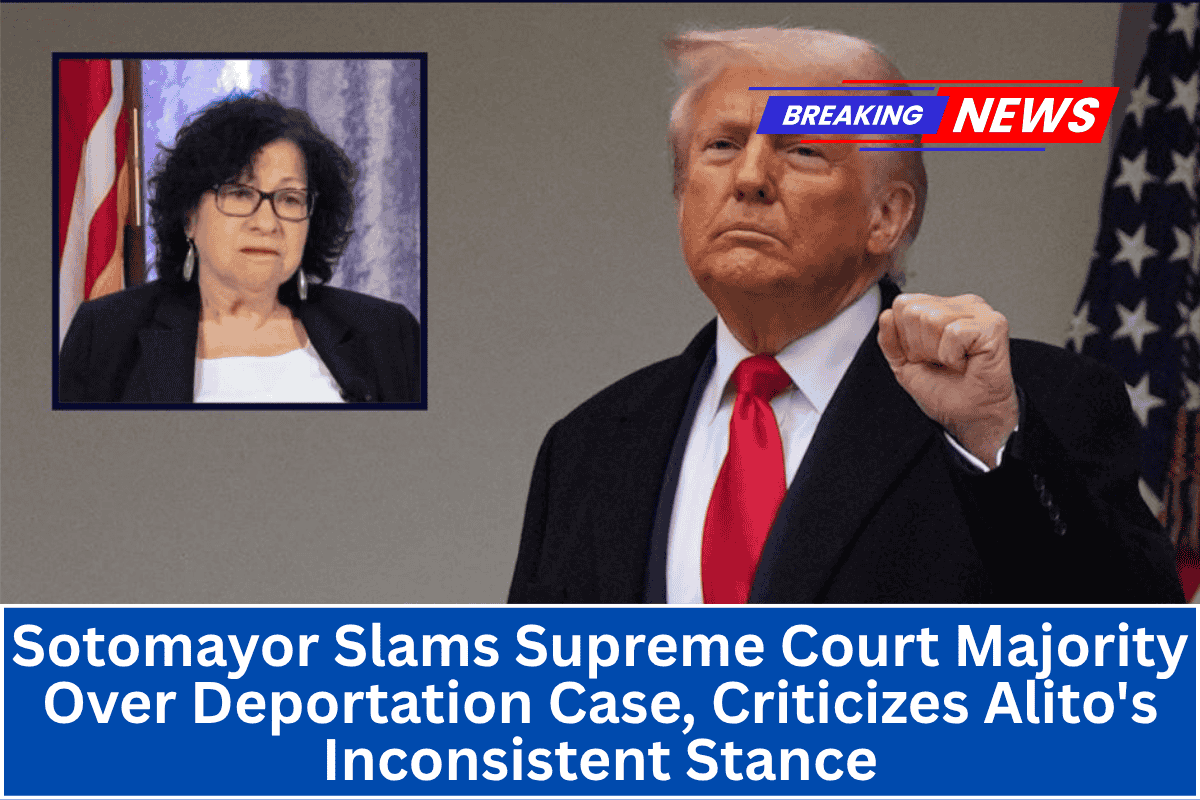In a scathing dissent, Justice Sonia Sotomayor, joined by Justice Ketanji Brown Jackson, took aim at her Supreme Court colleagues, particularly Justice Samuel Alito, over their handling of a case concerning the deportation of noncitizens to South Sudan.
The case involves eight men who had been detained at a U.S. military base in Djibouti and were slated for deportation, despite the fact that they were not Sudanese nationals.
The majority of the Court cleared the way for their deportation, overturning a lower court’s injunction that had blocked their removal.
The Dispute Over Due Process and Deportation
The core of the legal battle lies in whether the U.S. government can deport individuals to a country where they face the risk of torture or death, without giving them the proper opportunity to challenge the removal.
Sotomayor’s dissent emphasized the constitutional protections afforded to noncitizens, particularly under the Fifth Amendment, which guarantees due process before removal.
The case began when the government sought clarification of a previous stay issued by the Supreme Court, which had rendered unenforceable a lower court’s injunction barring the deportations.
Sotomayor argued that the government’s actions, which she deemed as “unlawful,” are in violation of these protections. She criticized the majority for allowing the deportation process to proceed without addressing the underlying due process issues and for granting emergency relief to the government without proper legal justification.
Sotomayor Critiques the Court’s Handling of Emergency Relief
In her dissent, Sotomayor took particular issue with the Court’s procedural irregularities. She accused the majority of disregarding established rules for granting emergency relief, pointing out that the Court acted swiftly without providing any legal rationale for its decision.
She also singled out Justice Alito for inconsistency, as he had previously insisted that the Court should adhere to established procedures when granting such relief.
Sotomayor’s critique focused on what she saw as a pattern of the Court bending its rules to accommodate the Trump administration’s interests. She noted that the government’s request for relief, framed as a mere “clarification,” was actually an effort to dispute the merits of the lower court’s order and bypass the regular judicial process.
Legal and Humanitarian Concerns
The dissent also highlighted the human rights concerns at the heart of the case. Sotomayor reminded the Court that U.S. and international law prohibit deportations to countries where individuals face the risk of torture or death.
She stressed that the government’s actions not only violated due process but also placed these men in danger by potentially sending them to a country where they could face grave harm.
She questioned the majority’s willingness to ignore the risks these men faced and accused the government of repeatedly violating court orders designed to protect the rights of noncitizens. “The government’s actions have been consistently lawless, and today’s decision only furthers that disregard for human rights,” Sotomayor wrote.
The Administration’s Influence
Sotomayor’s dissent concluded with a sharp critique of the Court’s handling of the case. “Today’s order clarifies only one thing: Other litigants must follow the rules, but the administration has the Supreme Court on speed dial,” Sotomayor wrote, signaling her belief that the Trump administration received preferential treatment from the Court. “Respectfully, I dissent.”






